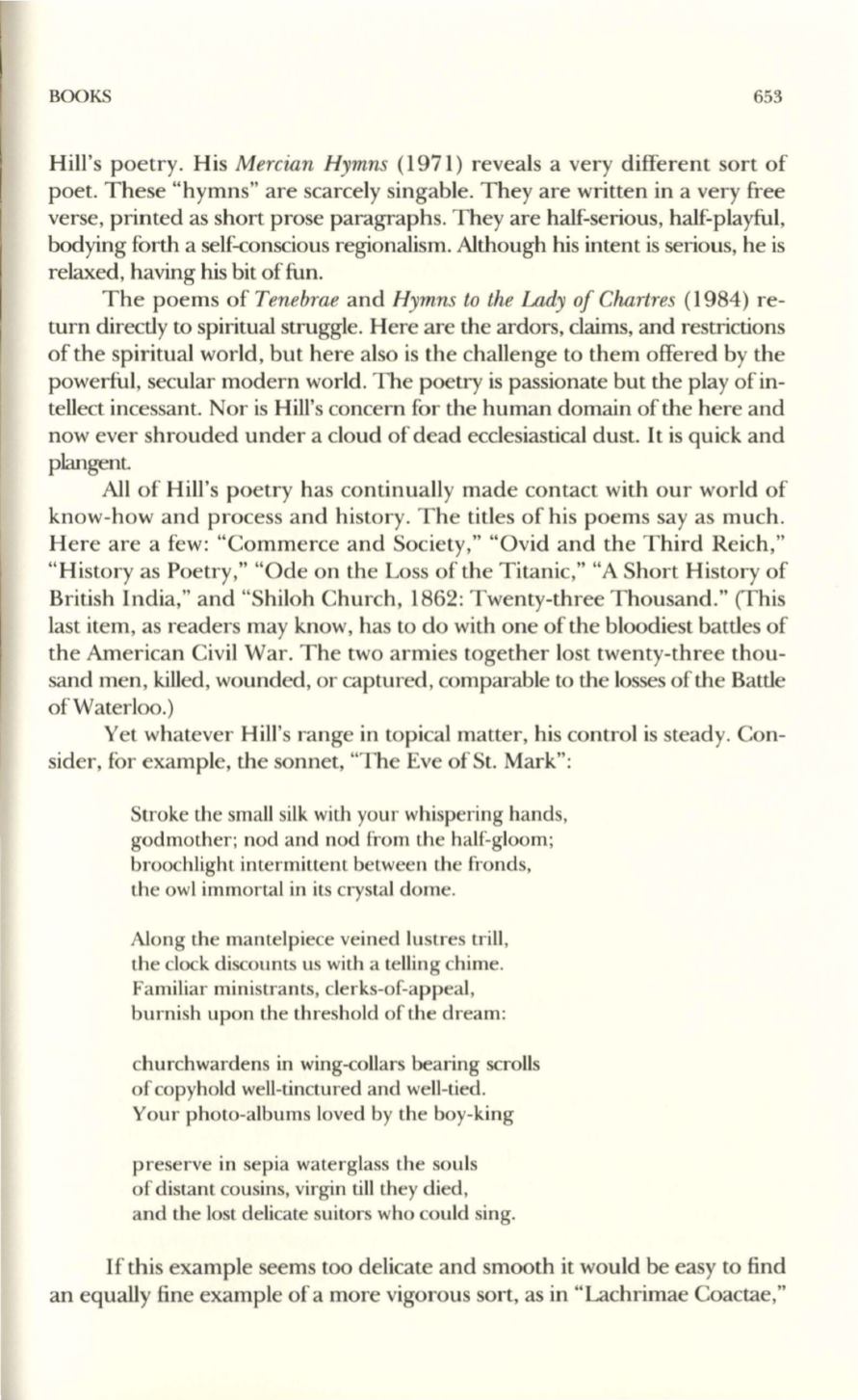
BOOKS
653
Hill's poetry. His
Mercian Hymns
(1971) reveals a very different sort of
poet. These "hymns" are scarcely singable. They are written in a very free
verse, printed as short prose paragraphs. They are half-serious, half-playful,
bodying forth a self-conscious regionalism. Although his intent is serious, he is
relaxed, having his bit of fun.
The poems of
Tenebrae
and
Hymns to the Lady of Chartres
(1984) re–
turn directly to spiritual struggle. Here are the ardors, claims, and restrictions
ofthe spiritual world, but here also is the challenge to them offered by the
powerful, secular modern world. The poetry is passionate but the play of in–
tellect incessant. Nor is Hill's concern for the human domain of the here and
now ever shrouded under a cloud of dead ecclesiastical dust.
It
is quick and
plangent
All of Hill's poetry has continually made contact with our world of
know-how and process and history. The titles of his poems say as much.
Here are a few: "Commerce and Society," "Ovid and the Third Reich,"
"History as Poetry," "Ode on the Loss of the Titanic," "A Short History of
British India," and "Shiloh Church, 1862: Twenty-three Thousand." (This
last item, as readers may know, has to do with one of the bloodiest battles of
the American Civil War. The two armies together lost twenty-three thou–
sand men, killed, wounded, or captured, comparable to the losses of the Battle
ofWaterloo.)
Yet whatever Hill's range in topical matter, his control is steady. Con–
sider, for example, the sonnet, "The Eve of St. Mark":
Stroke the small silk with your whispering hands,
godmother; nod and nod from the half-gloom;
broochlight intermittent between the fronds,
the owl immortal in its crystal dome.
Along the mantelpiece veined lustres trill,
the clock discounts us with a telling chime.
Familiar ministrants, clerks-of-appeal,
burnish upon the threshold of the dream:
churchwardens in wing-collars bearing scrolls
of copyhold well-tinctured and well-tied.
Your photo-albums loved by the boy-king
preserve in sepia waterglass the souls
of distant cousins, virgin till they died,
and the lost delicate suitors who could sing.
If this example seems too delicate and smooth it would be easy to find
an equally fine example of a more vigorous sort, as in "Lachrimae Coactae,"


